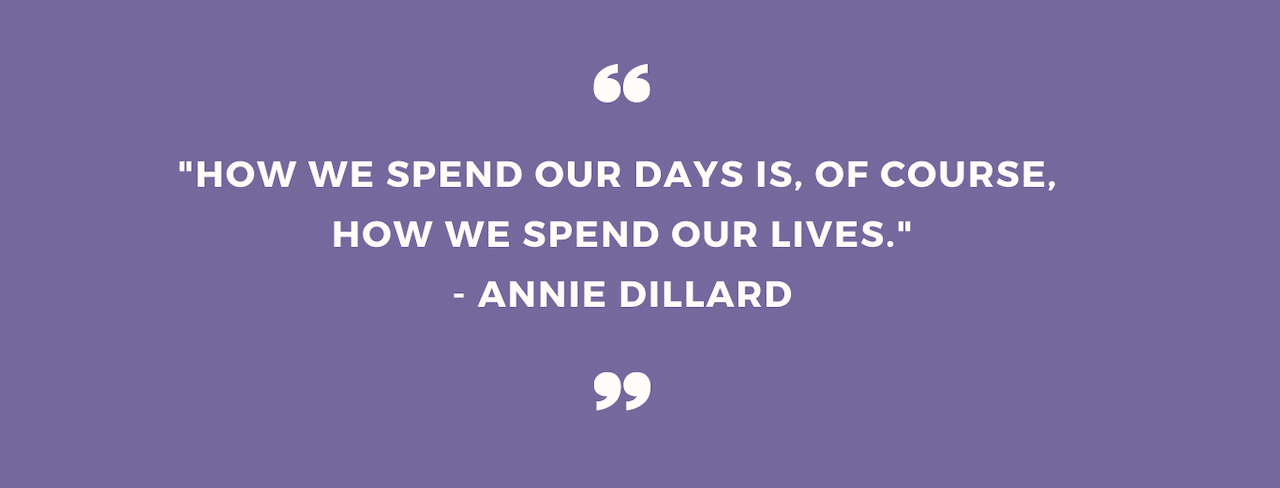Tech Shabbat, Words of Wisdom, and The Ripple Effect
In today’s world, deactivating our technology and taking a break from our devices is uncommon. But there are huge benefits to not being plugged in all the time. For employers, allowing your staff to have separation provides them with essential work-life balance. For individuals, taking time away and deactivating is an act of self-care.
For years, I observed Shabbat. No electricity. Break from all technology, long walks, naps, and socializing with friends. This was long before we had our addiction to cell phones and computers. In the years since I’ve gotten away from this important tradition.
A few weeks ago, I listened to a podcast with Krista Tippet and The On Being Project. Her conversation with Tiffany Shlain author of 24/6 discusses the idea of taking a “Tech Shabbat”. This was a push for me to consider how to get back to this vital practice. It’s an important way to add self-care to your life, especially after a year of a global pandemic. I highly recommend you listen to this episode!
The Concept of a “Break”
The concept of a “Tech Shabbat” is an opportunity anyone can practice. Observing Shabbat is something Jewish people have been doing in a variety of forms for more than 3,000 years. Even if you aren’t Jewish this idea can benefit anyone.
One day of rest. No work. One day to escape from technology. A chance to catch your breath.
A Tech Shabbat allows you a day to reflect and reconnect with yourself and your own internal thoughts. Taking a break from technology allows you to choose how to respond to all the media you might consume the rest of the week. It’s almost like a Tech Shabbat allows you an opportunity to reset each week.
A chance to structure and choose how to consciously enjoy the world and your life without the reflexive responses we’ve all now mindlessly found ourselves in. “I’m bored,” let me check my phone or my watch.

… What Now?
Boredom = Creativity. During a Tech Shabbat you choose what you want to do, fill it with all the activities you love to do just without technology. Tiffany observes the Tech Shabbat from Friday until Saturday night.
In complete honesty, when I really thought through what this would actually mean, I got scared. It felt like an overwhelming shift, that I wasn’t really ready for yet. What if my son called from colleague? What if I needed to look something up? How would I do all the “normal” activities like checking the weather or store hours or anything else I’ve become so accustomed to doing on my phone.
Additional Articles of Life and Technology:
The Results are In, It’s Worth It!
I shared the podcast on LinkedIn and one colleague posted, “I am definitely going to give this a try, although I feel the anxiety just saying that!”
Another colleague shared, that while she doesn’t officially take a full-blown Tech Shabbat, she said, “I do not wear my fitness tracker. I do not check business email, Slack, social media, or my business phone. Generally, I try to stay out of my Facebook and Instagram news feeds. Only responding to private messages and DNF comments, if that. I don’t respond to personal emails that are not Sabbath/Bible-related. My TV stays off and I do not watch the news. There’s a lot of technology I specifically avoid on the Sabbath, too.” Bam.
I loved that. So deactivating your technology doesn’t have to be all or nothing. You can choose anything that works for you.
So that’s what I’ve done. So far I’ve had three weeks where I turn off all technology on Friday nights. It’s already felt more spacious and welcoming. No one says you have to go cold turkey. Completely deactivating would probably feel like severing too much. Take small steps, and allow yourself a moment of peace and quiet when you can.
Do whatever works for you, but maybe there are some benefits in choosing to take a break from technology one day a week. Yeah, I’m pretty sure it’s easy to confirm that. So who’s willing to give it a try with me?

